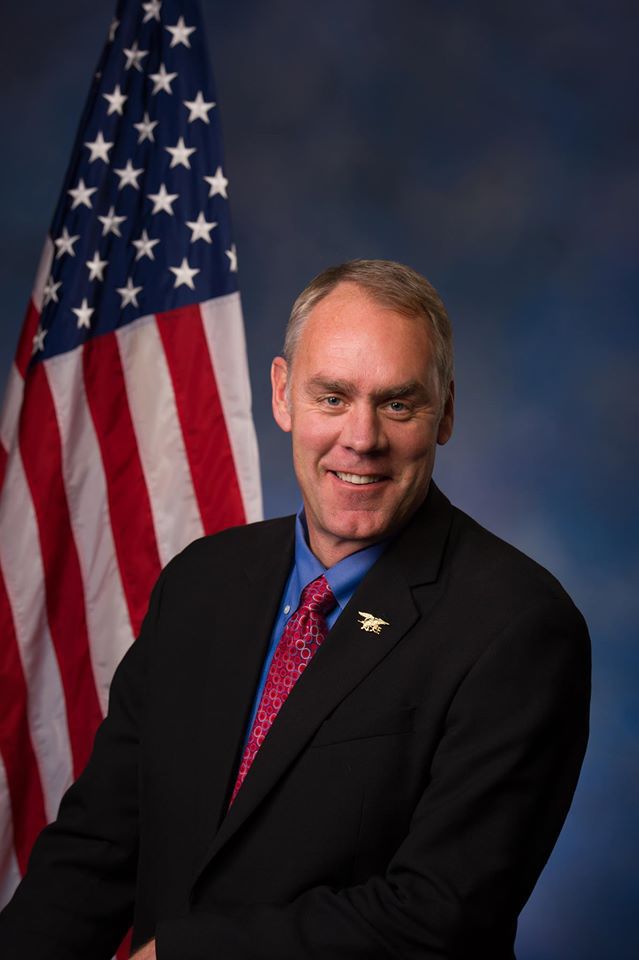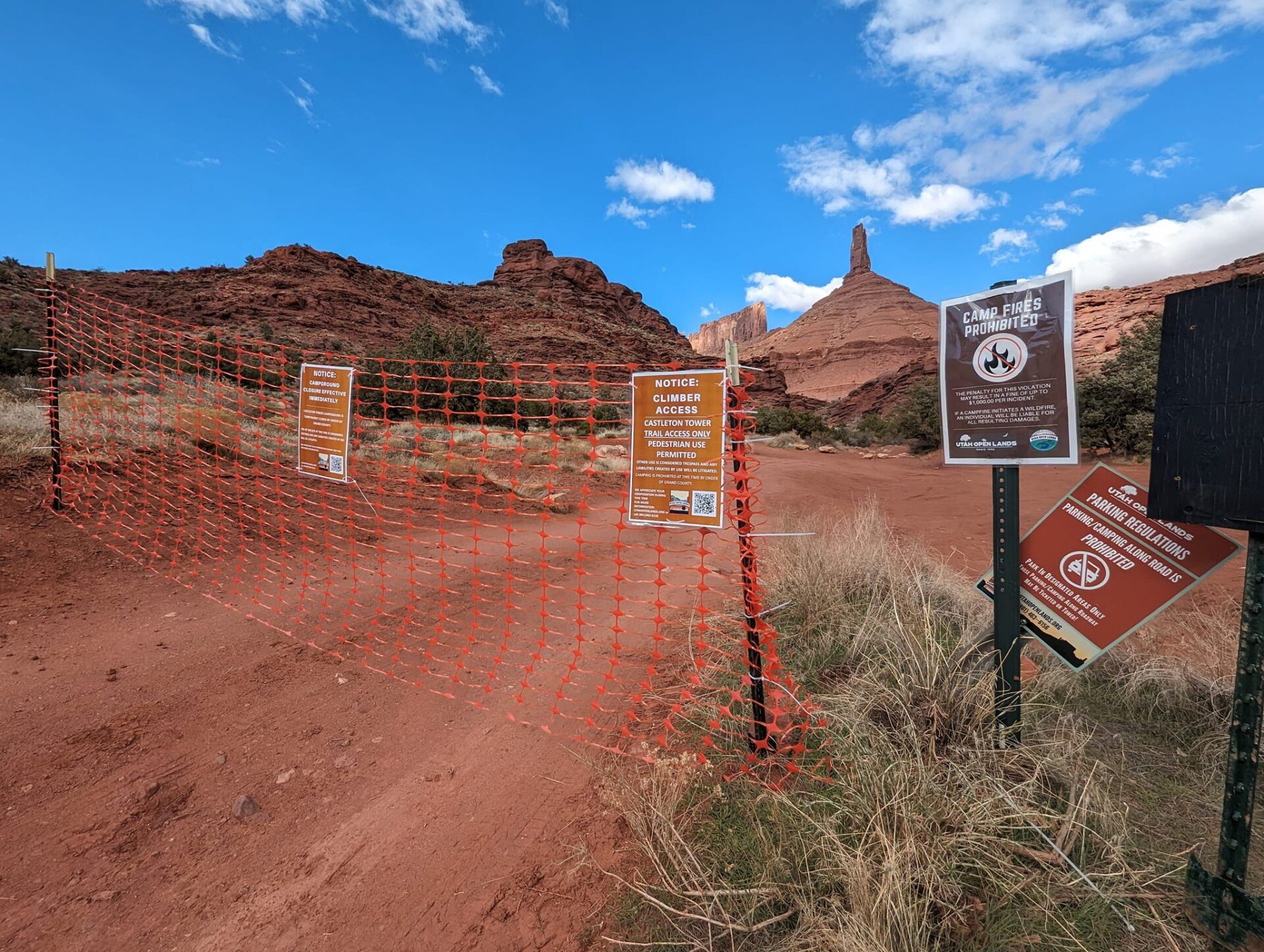If Ryan Zinke takes the reins as the nation’s top federal land manager, he’s vowed that Utah will be his first stop on the job, and county officials are hoping that trip includes a visit to Moab.
Grand County Council members voted 5-1 on Tuesday, Jan. 31, to send a letter that invites the U.S. Interior Secretary-designate to meet with them to discuss public lands issues. Curtis Wells voted against the majority, and Rory Paxman was absent from the council’s discussion of the issue.
Zinke is a former U.S. Navy SEAL who just began his second term as a Republican congressman from Montana. He is poised to lead a department that oversees numerous federal agencies, from the National Park Service and the U.S. Bureau of Land Management (BLM) to the Bureau of Indian Affairs and the Bureau of Reclamation.
The U.S. Senate Committee on Energy and Natural Resources voted 16-6 on Jan. 31 to send Zinke’s name on to the full Senate, with four Democrats joining all 12 Republican committee members in support of his nomination.
Grand County Council member Chris Baird, who drafted the letter to Zinke, said that as a rule, it’s wise to develop a working relationship with an Interior Department secretary any time that person happens to be in the region.
“It’s always worth talking with those folks about how things work in Grand County, and to have a discussion about public lands issues, as they relate to Grand County,” Baird said.
Wells said he welcomed the chance to get together with Zinke.
“As far as inviting this gentleman in to come and break some bread, I think it’s a great idea,” he said.
But Baird’s letter doesn’t stop with the invitation, and Wells took issue with Baird’s reference to a “balanced Management Framework Plan for energy leasing” in the county – a characterization that he and other supporters of mineral development reject.
BLM officials say their Master Leasing Plan to guide management activities on more than 785,000 acres of land near Moab over a 15-year period strikes a balance between conservation and recreation on the one hand and mineral development on the other.
But critics like San Juan County Commissioner Bruce Adams have said the plan threatens the future of an industry that has traditionally offered area residents living-wage jobs, while bolstering local government revenues through property tax payments and mineral lease revenues. Adams, in particular, maintains the plan prevents developers from accessing a major potash deposit in northern San Juan County.
“The Master Leasing Plan is highly contentious,” Wells said. “It’s a topic of continuing discussion around having new appointments in the Interior, and it’s very (polarizing).”
While the plan was labeled as “balanced,” Wells said, many people view it as more of a lobbying effort “standing on the back” of natural resource development in the region.
“And so my wish and recommendation (is), if you’re going to put my name on the letter, to back off of plugging the Master Leasing Plan as balanced,” he said.
Baird noted that the council has written multiple letters in support of the plan, and said later that council members’ diverse viewpoints on the issue have always gotten through to state and federal representatives. But Wells countered that the county council’s makeup has changed in the time since a majority of council members last voted in support of the BLM’s plan.
“I think it’s bad business for you guys to get in and write these letters when we have a diverse board and send those out when that’s not the consensus, at least, with all of the council members,” he said. “If we want to send out letters individually plugging different controversial management plans, that’s one thing, but if you wanted to send a letter out to invite someone to come and visit with us…”
At that point, Baird cut in, calling his written comments a “factual statement.”
“We did work on the Master Leasing Plan, and we did take a position on it,” Baird said. “If you don’t want to vote for this, then don’t vote for it.”
While the council’s complexion has changed since the 2014 and 2016 elections, it hasn’t moved in Wells’ direction: Its progressive-leaning majority has actually grown to five of its seven members.
Grand County Council chair Jaylyn Hawks told Wells that if he’s concerned about the Master Leasing Plan, he’d have a chance to personally share his thoughts if Zinke swings through town.
“If and when a potential Secretary of the Interior … comes and visits, that would be your opportunity, I would guess, to make your views known,” she said.
Secretary-designate opposes lands transfer, supports resource development
Zinke enjoys broad – but by no means unanimous – support from Republicans and Democrats, unlike a number of President Donald Trump’s other picks for domestic Cabinet offices, such as his nominees to lead the U.S. Treasury and U.S. Education departments.
During his first term in the U.S. House of Representatives, Zinke bucked his party on one key issue that Rep. Rob Bishop, R-Utah, and many other House Republicans have championed: the sale or transfer of federal lands to states or private development interests.
His philosophy toward public lands management is rooted in the multiple-use concept that supports outdoor recreation, hunting, fishing and conservation on the one hand; and mining, logging and livestock grazing on the other.
At his Senate confirmation hearing last month, Zinke called himself an “unapologetic admirer” of former President Teddy Roosevelt, a conservationist, outdoorsman and early champion of America’s public lands.
As a fifth-generation Montanan, Zinke has said he understands how important public lands are to local economies, communities and the “very way of life” in the West. It is of the “utmost importance,” he said, to preserve public access to public lands whose natural resources create jobs, support families and promote recreation.
As a member of the Congressional Sportsmen’s Caucus, he’s won the enthusiastic support of sportsmen’s groups like Backcountry Hunters & Anglers who strongly oppose Bishop’s land transfer proposals.
Environmentalists, however, are decidedly more skeptical about Zinke’s support for energy development and other industrial activities on some public lands.
He recently set off alarm bells among some environmental groups with his statements regarding former President Barack Obama’s December 2016 proclamation designating a 1.35-million-acre Bears Ears National Monument on existing federal lands in San Juan County.
Zinke testified that he believes presidents have the authority to amend a predecessor’s monument proclamations, although he suggested that it remains to be seen whether a president actually has the authority to nullify a monument.
Moab resident and Sierra Club member Marc Thomas – the only member of the public who spoke during the county council’s consideration of the letter to Zinke – urged council members to take a stand in support of the new monument.
“I think that being on the doorstep of the national monument, the council could send a very strong message to the rest of Utah’s leaders,” he told the Moab Sun News.
The county’s voice, he said, is all the more important in light of state efforts to undo the Bears Ears proclamation, as well as former President Bill Clinton’s 1996 designation of the Grand Staircase-Escalante National Monument.
“My concern is that the Mike Lees and the Mike Noels of this world have whipped up this hysteria to get Bears Ears revoked,” he said.
However, Baird said he deliberately omitted any reference to the monument in his letter because he doesn’t believe that it’s Grand County’s business – a viewpoint that Grand County Council member Greg Halliday said he shares.
Still, Thomas said he believes the council could help defuse the tension that Utah’s elected officials created, while respecting tribes who worked hard on a plan that gives them a voice in the future management of the new monument.
“I think it’s everybody in America’s business, because these public lands belong to all of us,” Thomas said.
Wells opposes reference to “balanced” Master Leasing Plan
It’s always worth talking with those folks about how things work in Grand County, and to have a discussion about public lands issues, as they relate to Grand County.




